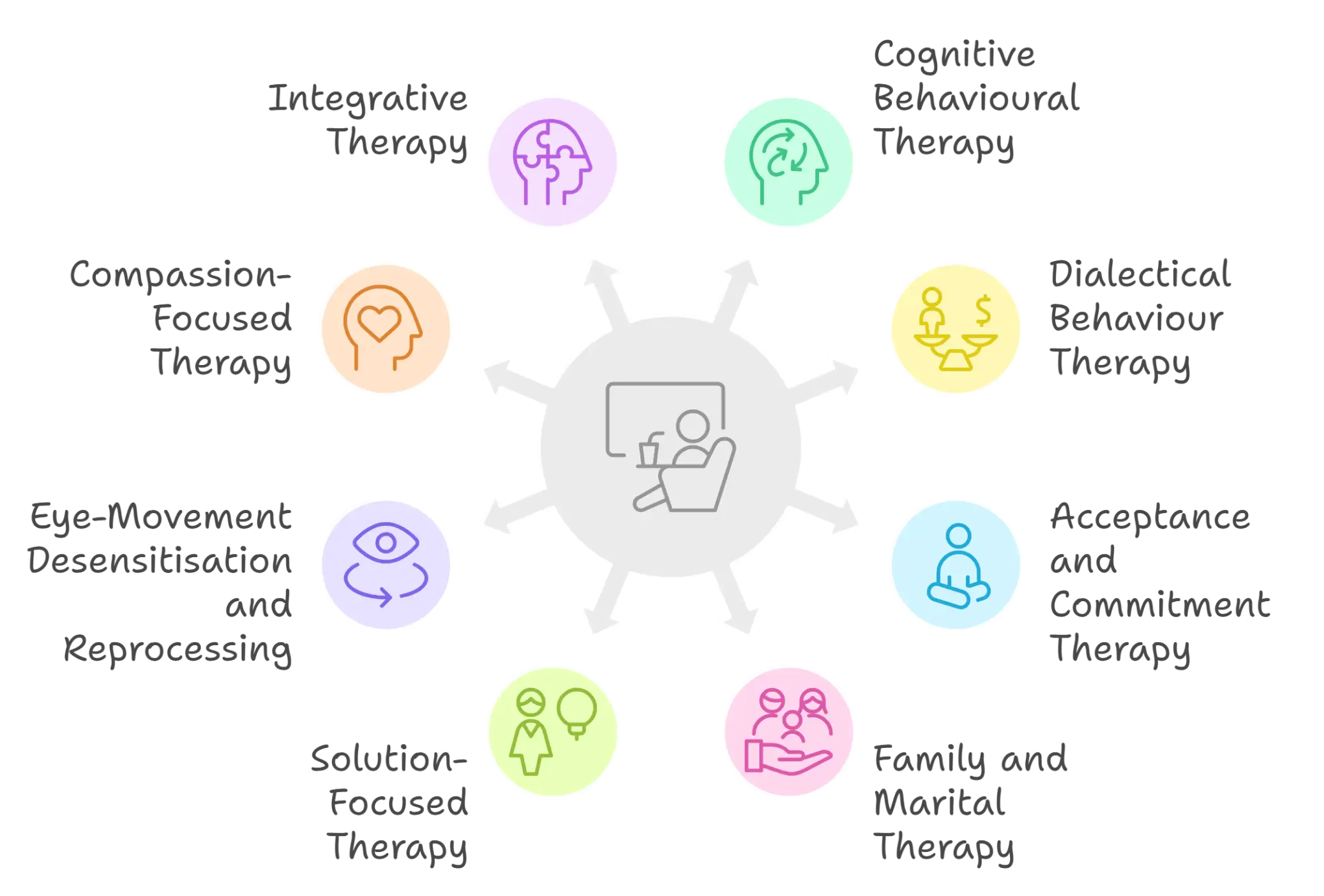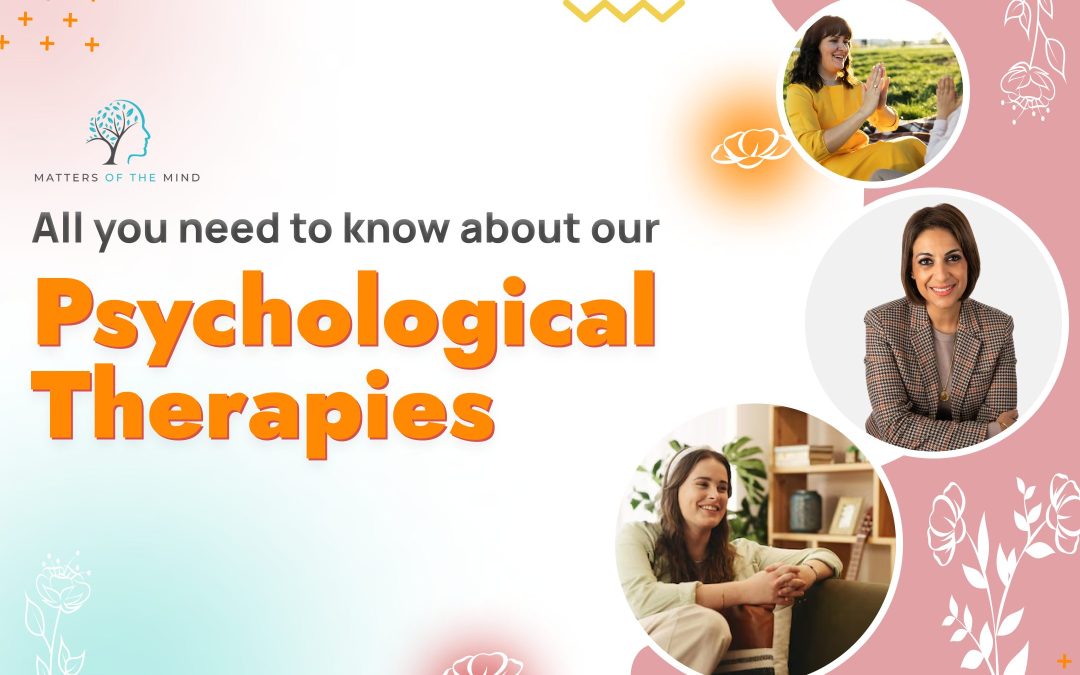Imagine waking up every day with a clear mind, a sense of calm, and the strength to face any challenge. At Matters of Mind, we believe that peace of mind is within your reach. Whether you’re feeling stressed, struggling with negative thoughts, or simply seeking clarity, we’re here to help you achieve a healthier, more balanced state of mind. Your mental health matters as much as your physical health, and seeking support is the first step towards healing. Our therapies are designed to be welcoming, effective, and empowering. You deserve a journey of recovery that fills you with hope, not fear. Let us guide you towards a more fulfilling life.
About Matters of the Mind

MATTERS OF THE MIND
Dr. Kavita Deepak-Knights
FOUNDER OF
Matters Of The Mind
Dr. Kavita Deepak-Knights, a Chartered Clinical Psychologist trained at Oxford, specializes in adult mental health offering services in Windsor and across Berkshire.
Explore the Psychological Therapies We Offer

1. Cognitive Behavioural Therapy (CBT)
Core Principles of CBT
- Transform Negative Thinking: CBT helps you recognise and replace harmful thoughts with healthier, balanced ones.
- Boost Emotional Resilience: By shifting your thinking, CBT helps you manage emotions like anxiety, sadness, and frustration.
- Break the Cycle of Stress: Through this therapy, you learn about sources and healthier ways to cope with stress.
- Improve Your Problem-Solving Skills: CBT helps you solve problems clearly and find workable solutions, not anxiety.
2. Dialectical Behaviour Therapy (DBT)
The Four Key Skills Taught in (DBT)
- Mindfulness: Becoming more aware of your thoughts, feelings, and surroundings in the present moment, without judgment.
- Distress Tolerance: Building the ability to handle difficult emotions and situations without turning to harmful behaviours.
- Emotion Regulation: Learning how to identify, understand, and manage intense emotions in healthier ways.
- Interpersonal Effectiveness: Developing better communication skills and improving relationships by expressing needs, setting boundaries, and resolving conflicts effectively.
3. Acceptance and Commitment Therapy (ACT)
Acceptance and Commitment Therapy, or ACT, is one type of therapy through which Matters of Mind tries to help a person accept painful thoughts and emotions rather than attempt to escape them or modify them. In ACT, it tries to get a person to live the most meaningful life possible by acting in alignment with their core values even if uncomfortable. ACT teaches you to be in the present, letting go of all unhelpful thoughts and focusing on what is important. It is not about removing negative emotions but about moving forward with them, creating a life full of purpose and fulfilment.
Core Principles of ACT
- Cognitive Defusion: The ability to let go of negative or unhelpful thoughts, seeing them for what they are—just thoughts, not truths.
- Acceptance: Embracing difficult emotions and thoughts rather than avoiding or suppressing them.
- Present Moment Awareness: Focusing on the present rather than thinking about the past or worrying about the future.
4. Family and Marital (Systemic) Therapy
Core Principles of Family and Marital (Systemic) Therapy
- Holistic View of Problems: Problems are viewed in the context of family or relationship dynamics, not as individual behaviour.
- Interconnectedness: Every individual’s behaviour and emotions influence the entire family or relationship system.
- Communication Patterns: Improve communication and understanding to decrease misunderstandings and conflicts.
- Roles and Boundaries: Identifying and adjusting unhealthy roles and boundaries for healthier interactions.
5. Solution-Focused Therapy
Core Principles of SFT
- Small Steps Lead to Big Changes: Small, manageable steps are identified and implemented, creating momentum for larger changes over time.
- Positive Change is Possible: SFT operates from the belief that change is always possible, regardless of the size of the problem.
- Exception-Finding: The therapist helps clients identify times when the problem was less severe or absent, looking for patterns and strategies that can be used to create change.
6. Eye-Movement Desensitisation and Reprocessing (EMDR)
Core Principles of EMDR
- Bilateral Stimulation: EMDR uses eye movements or tapping to help process traumatic memories.
- Adaptive Information Processing: EMDR reprocesses unprocessed traumatic memories, integrating them in a healthier way.
7. Compassion-Focused Therapy
Core Principles of EMDR
- Self-Compassion: CFT encourages individuals to develop a compassionate mindset, treating themselves with the same kindness and care they would show to others.
- Reducing Self-Criticism: The therapy focuses on reducing feelings of shame and self-criticism, which can undermine mental well-being, by fostering self-acceptance and kindness.


